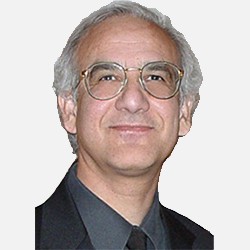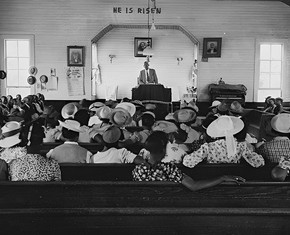The views expressed in our content reflect individual perspectives and do not represent the authoritative views of the Baha'i Faith.
Baha’u’llah’s statements about seizing power from the kings and clerical rulers can partly be seen as an affirmation of his message to the political and religious leaders of the world in 1868:
From two ranks amongst men power hath been seized: kings and ecclesiastics. – quoted by Shoghi Effendi in God Passes By
Emphasizing the same point and Proclaiming the abolishment of priesthood in his new religion, Baha’u’llah wrote:
O concourse of divines! Ye shall not henceforth behold yourselves possessed of any power, inasmuch as We have seized it from you, and destined it for such as have believed in God, the One, the All-Powerful, the Almighty, the Unconstrained. – The Proclamation of Baha’u’llah
Among the letters sent by Baha’u’llah to the leaders of the world, the first letter, written in the last days of Baha’u’llah in Adrianople and before his exile to Akka, is addressed to the king of Iran, Nasir al-Din Shah. The main thrust of Baha’u’llah’s discourse in this work involves a critique of clerical despotism, when he identifies the root cause of the problems of Iran as clerical autocracy and intolerance. He expressed similar sentiments in addressing the Pope and the emperors of France and Russia. His emphasis on political democracy is found in Baha’u’llah’s letter to Queen Victoria, which praises her for both outlawing slave traffic and extending democratic rule.
But in another sense, the statements of Baha’u’llah regarding the clerics and the kings summarize his revelation up to that point. At the time of the statement of Baha’u’llah in the late 1860s, the writings of Baha’u’llah range from 1853 to 1869. It is important to recognize that Baha’u’llah’s writings about human society during the 1850s do not directly address the question of political democracy – instead, these writings are directed against clerical despotism. Then, in the context of his previous emphasis on cultural and spiritual democracy, Baha’u’llah began emphasizing political democracy during the 1860s in the context of his call for a holistic transformation of all governmental and religious institutions in the direction of global unity and universal peace. This order is not accidental. Baha’u’llah first emphasized the need for cultural and spiritual democracy as the precondition of the emergence of political democracy, and then focused on social reform including the establishment of a global political democracy.
The Independent Investigation of Truth
The main works of Baha’u’llah during the 1850s and early 1860s all emphasize the imperative of spiritual democracy, the principle of the independent investigation of truth. These writings begin with a number of mystical writings of Baha’u’llah –”The Seven Valleys, The Four Valleys,” and “The Hidden Words” – and end with a number of theological works which emphasize historical consciousness, including “The Gems of Divine Mysteries” and “The Book of Certitude.” The common points in these two types of the writings of Baha’u’llah are the rejection of all prejudices, a critique of clerical authority, and affirmation of the imperative of independent thinking for understanding the truth.
These works emphasize the method of the personal investigation of truth, and attribute the source of the persecution of all the prophets and messengers of God to people’s blind reliance on the judgment of their religious leaders and clerics – and ultimately, their refusal to think for themselves. In systematic ways, Baha’u’llah wrote of the need for doubting all ideas, ignoring the judgments of clerics, purifying the heart and mind from all vestiges of traditionalism, and recognizing their own power of thinking as the greatest bounty of God to humanity. These statements of Baha’u’llah from three of his major works illustrate those themes:
O Son of Spirit! My first counsel is this: Possess a pure, kindly and radiant heart, that thine may be a sovereignty ancient, imperishable and everlasting. – Baha’u’llah, The Hidden Words
The first is the Valley of Search. The steed of this valley is patience… It is incumbent upon these servants to cleanse the heart, which is the wellspring of divine treasures, of every marking; turn away from imitation, which is following the traces of their forefathers; and shut the door of friendship and enmity upon all the people of the earth. – The Seven Valleys
No man shall attain the shores of the ocean of true understanding except he be detached from all that is in heaven and on earth. Sanctify your souls, O ye peoples of the world, that haply ye may attain that station which God hath destined for you… – Baha’u’llah, The Book of Certitude
In this context, Baha’u’llah discussed in his subsequent writings throughout the 1860s and afterwards the necessity of transforming social institutions, realizing political democracy, and creating a democratic and consultative collective security for the entire world. Addressing Queen Victoria, he wrote:
We have been informed that thou hast forbidden the trading in slaves, both men and women. This, verily, is what God hath enjoined in this wondrous Revelation … We have also heard that thou hast entrusted the reins of counsel into the hands of the representatives of the people. Thou, indeed, hast done well, for thereby the foundations of the edifice of thine affairs will be strengthened, and the hearts of all that are beneath thy shadow, whether high or low, will be tranquillized. – The Proclamation of Baha’u’llah
Baha’u’llah and the Emancipation of Iran and the Middle East
The writings of Baha’u’llah, encapsulated in his letters to the kings and ecclesiastics, offered a path to the reform and development of Iran and other Middle Eastern societies in the middle of the 19th century. Unfortunately, Iranians failed to listen to the wisdom of Baha’u’llah, and therefore their approach to social reform and democracy became the opposite of the path suggested by Baha’u’llah. Accordingly, we can identify the root cause of the failure of reform movements in Iran as precisely the rejection of the message of Baha’u’llah.
For Baha’u’llah, no true political democracy is possible unless a critique of spiritual and cultural tyranny has already taken place.
Although 20th and 21st century social movements have struggled to realize political democracy in Iran – including both the constitutional Revolution of 1906-1911 and the Islamic Revolution of 1979 – the dominant method of striving for political democracy has been the glorification and institutionalization of clerical despotism. In both the Constitutional and Islamic revolutions, the clerics were defined as the leaders of revolution and the agents of modernization, democratization, and emancipation.
In other words, from Baha’u’llah’s point of view, the precondition of the realization of political democracy and social prosperity requires the institutional separation of church and state. The Iranian path to democratization has been one of the institutionalization of clerical political authority, a path that defined democratization as Islamization. That is why the Islamic Revolution not only did not result in political democracy, it led to the unity of two forms of despotism: clerical and political. Baha’u’llah warned against the spiritual tyranny of the clerics and the political tyranny of the rulers. One can see that for Baha’u’llah the ultimate form of tyranny is the unity of these two forms of despotism, namely a clerical theocracy.
For the last 160 years, Iranians have persecuted the Baha’is for their belief in the words of Baha’u’llah. Only recently have most of the Iranian intellectuals realized the need for both spiritual and political democracy, unaware of the fact that this glorious sociological and spiritual insight first came from Baha’u’llah for the emancipation and development of Iran.
















Comments
Sign in or create an account
Continue with Googleor